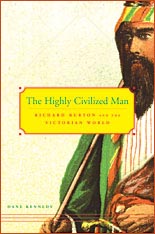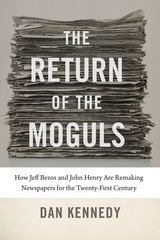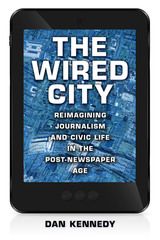
Richard Burton was one of Victorian Britain's most protean figures. A soldier, explorer, ethnographer, and polyglot of rare power, as well as a poet, travel writer, and translator of the tales of the Arabian Nights and the Kama Sutra, Burton exercised his abundant talents in a diverse array of endeavors. Though best remembered as an adventurer who entered Mecca in disguise and sought the source of the White Nile, Burton traveled so widely, wrote so prolifically, and contributed so forcefully to his generation's most contentious debates that heprovides us with a singularly panoramic perspective on the world of theVictorians.
One of the great challenges confronting the British in the nineteenth century was to make sense of the multiplicity of peoples and cultures they encountered in their imperial march around the globe. Burton played an important role in this mission. Drawing on his wide-ranging experiences in other lands and intense curiosity about their inhabitants, he conducted an intellectually ambitious, highly provocative inquiry into racial, religious, and sexual differences that exposed his own society's norms to scrutiny.
Dane Kennedy offers a fresh and compelling examination of Burton and his contribution to the widening world of the Victorians. He advances the view that the Victorians' efforts to attach meaning to the differences they observed among other peoples had a profound influence on their own sense of self, destabilizing identities and reshaping consciousness. Engagingly written and vigorously argued, The Highly Civilized Man is an important contribution to our understanding of a remarkable man and a crucial era.

For a British Empire that stretched across much of the globe at the start of the nineteenth century, the interiors of Africa and Australia remained intriguing mysteries. The challenge of opening these continents to imperial influence fell to a proto-professional coterie of determined explorers. They sought knowledge, adventure, and fame, but often experienced confusion, fear, and failure. The Last Blank Spaces follows the arc of these explorations, from idea to practice, from intention to outcome, from myth to reality.
Those who conducted the hundreds of expeditions that probed Africa and Australia in the nineteenth century adopted a mode of scientific investigation that had been developed by previous generations of seaborne explorers. They likened the two continents to oceans, empty spaces that could be made truly knowable only by mapping, measuring, observing, and preserving. They found, however, that their survival and success depended less on this system of universal knowledge than it did on the local knowledge possessed by native peoples.
While explorers sought to advance the interests of Britain and its emigrant communities, Dane Kennedy discovers a more complex outcome: expeditions that failed ignominiously, explorers whose loyalties proved ambivalent or divided, and, above all, local states and peoples who diverted expeditions to serve their own purposes. The collisions, and occasional convergences, between British and indigenous values, interests, and modes of knowing the world are brought to the fore in this fresh and engaging study.


Although the Independent is the principal subject of The Wired City, Kennedy examines a number of other online news projects as well, including nonprofit organizations such as Voiceof San Diego and the Connecticut Mirror and for-profit ventures such as the Batavian, Baristanet, and CT News Junkie. Where legacy media such as major city newspapers are cutting back on coverage, entrepreneurs are now moving in to fill at least some of the vacuum.
The Wired City includes the perspectives of journalists, activists, and civic leaders who are actively re-envisioning how journalism can be meaningful in a hyperconnected age of abundant news sources. Kennedy provides deeper context by analyzing the decline of the newspaper industry in recent years and, in the case of those sites choosing such a path, the uneasy relationship between nonprofit status and the First Amendment.
At a time of pessimism over the future of journalism, The Wired City offers hope. What Kennedy documents is not the death of journalism but rather the uncertain and sometimes painful early stages of rebirth.
READERS
Browse our collection.
PUBLISHERS
See BiblioVault's publisher services.
STUDENT SERVICES
Files for college accessibility offices.
UChicago Accessibility Resources
home | accessibility | search | about | contact us
BiblioVault ® 2001 - 2024
The University of Chicago Press









